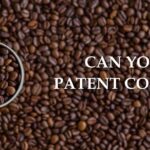SCOTUS broadens chances of patent owner damage recovery
On behalf of Kaufhold & Dix Patent Law posted in Patent Law on Thursday, July 5, 2018.
A traditional view within patent law is that a patent granted for an invention or idea extends infringement protection only within the bounds of the country that issued the license. So, if you obtain a patent from the U.S. government, the law limits recovery for infringement damages to market losses within the U.S.
However, that rather bright line standard is a little fuzzier in the wake of a decision by the U.S. Supreme Court. Last month, the high court ruled on a 7-2 vote that U.S. companies that lose profits from overseas markets due to infringement can seek recovery. The case now returns to the lower courts for a new determination on whether damages are owed, and if so, how much.
What this action reflects is that patent law remains an environment in which the rules are subject to change. And the important lesson for inventors is that they risk losing control and potential monetary benefit here and abroad by underestimating the value of seeking and obtaining a patent.
The issue in this particular case involved four patents held by WesternGeco, a subsidiary of Houston-based oilfield services firm, Schlumberger Corp. Lower courts had found that another company, ION Geophysical, infringed the WesternGeco patents. ION then used the components to develop a competing tool for finding marine-based oil deposits and sold the tool to foreign clients.
A jury in the case awarded WesternGeco more than $12 million in royalties and nearly $94 million in lost profits. But an appeals court said the Schlumberger subsidiary couldn’t recover for lost profits, citing the view that U.S. patent law doesn’t cover usage of infringed products overseas.
The Supreme Court reversed that appeal decision and the matter now returns to the lower court for reconsideration of the profit loss issue. One twist that could influence that decision is that the appeals court invalidated three of the four patents in question.
Regardless of where an inventor or entrepreneur is based in the U.S., it’s important to be aware of the potential for lost opportunity if patents are infringed. To protect your rights, consult a skilled intellectual property law firm.








